8 min. Read
Irrespective of where you go around the globe, everybody loves to celebrate. And when it comes to celebration, festivals offer something for everyone. Whatever you’re into, be it arts and culture, food and wine, holidays, or religion, there’s a gathering somewhere with your name on it.
Festivals are mostly a form of entertainment through a showing of cultural attires, dance, music, delicacies, and the performing of religious rites. The timeline of festivals is usually constant, either through natural moon appearances, market days, or auspicious days of things like the first/last rain, foods, and many more. Most festivals are generally celebrated annually; however, there are many festivals that are done twice or many times a year.
Most festivals in Nigeria are mostly performed in honor of the gods and deities of the respective tribes that celebrate them; to fulfill certain cultural and religious rites. Festivals in Nigeria aren’t just holidays, it’s more about celebrating the rich cultural heritage of the people. What’s more? Every part of the world has its own festivals related to either its culture, traditions, or religious beliefs which they perform.
In no particular order, outlined below is a look at our list of a few most celebrated festivals around the world – locally and internationally.
- The New Yam Festival. (IWA-JI)
credit: Guardian Nigeria.
The Igbos from the eastern part of Nigeria are known for their vast perseverance in their culture and traditions.
They have so many festivals they celebrate showing gratitude and thanksgiving to God for his best.
The culture of yam cultivation and preservation is an age-long attribute that has been there for several years since the time of our ancestors until now. Among the Igbo tribe of Nigeria, West Africa, it is obvious the most cherished and respected crop is the yam.
Back In Onitsha, before the real yam was founded, a FAMILY in a village called Umuasle discovered a seed called AKU. (AKU is a slave yam seed that grows on the surface of the earth produced by creeping stem plant which is mostly eaten during the famine but must be cooked overnight before consumption
On the discovery, the head of the family cooked the seed which was fed to the whole family, hours later the entire family died of food poisoning.
However, the seed contained so much alkali substance which was believed to have caused the sudden death of the entire family. In trying to find a solution to this and avoid the tragic scenario that had happened, they sought answers and solutions from their oracle on what to do regarding the issue. Eventually, they were guided on the path of how to go about it, and since then has been used to date
The New yam festival in Onitsha is placed top amongst all others in the entire Igbo community since its inception. In fact, no man in Igbo land seems to eat new yam until after the festival is been celebrated. It has become a symbolic trend for the people’s culture and it’s not taken for granted.
In most families in Igbo land, wives and children can start eating new yams, without the men or heads of the families joining them and this is because the men regard it as an abomination to eat new yams without celebrating it with the ancestors.
These festivities normally include a variety of entertainments and ceremonies, including the performance of rites by the Igwe (King), or the eldest man, and cultural dances by Igbo men, women, and their children. The festival features Igbo cultural activities in the form of contemporary shows, masquerade dances, and fashion parades. Most households will expect to entertain immediate and extended family members, neighbors, and visitors from out of town.
It is indeed a wonderful and joyous experience for the Igbos in the western part of Nigeria.
Although this festival is mostly celebrated by the Igbo people, the new yam festival is also celebrated in other parts of Nigeria, including the Yoruba and Hausa.
This festival is usually celebrated at the end of rainy season in early August to October.
Explore Anambra – https://www.tripadvisor.com/Flights-g3652146-Anambra_State-Cheap_Discount_Airfares.html
https://www.tripadvisor.com/Hotels-g3652146-Anambra_State-Hotels.html
https://www.trip.com/travel-guide/destination/anambra-state-1699090/
As celebrated in other parts of Nigeria, the new yam festival is also celebrated in London – “Yam carnival” as it’s called, is a music festival founded in 2021 by the brains behind Afro Nation. The festival celebrates the biggest sounds in Afro beats, hip hop, dance, Afro-swing, and R&B. Across three stages, artists come together for a defining cultural moment, all set in the heart of London on the August bank holiday weekend.
In the past, the festival has hosted the likes of Davido, Kehlani, Ms Banks, Pa Salieu, Ari Lennox, Princess Nokia, Honey Dijon, and many more.
Set to hold at London Clapham Common, the United Kingdom on the 27th of August, 2022; YAM Carnival will return with Nigeria’s own “star-boy” Wizkid headlining the event amongst performances by Focalistic, Naira Marley, Gabzy, DJ Maphorisa, Major League, Ckay, and many more.
credit: Groove Africa.
For Tickets and more information – https://www.stereoboard.com/yam-carnival-tickets
- Rio Carnival (Rio De Janeiro, Brazil).
There’s no Carnival like Rio’s Carnival. With an attendance of almost two (2) million people from different countries, this festival is considered to be the biggest event in the world. It is almost impossible to think of Brazil’s capital city without thinking of its Carnival.
Brazil’s Rio carnival is a mixture of indigenous cultures – both African and Portuguese. At the heart of the Carnival is the samba, which is the perfect Illustration of the Afro-European blend that defines the rich Culture.
Rio de Janeiro’s carnival roots began in 1723 when Portuguese immigrants colonized Brazil. They called the carnival “Entrudo”- meaning entrance. The “entrudo” consisted of a water fight with lemon juice and sometimes mud was also used.
From the influence of the Portuguese royal family who established their rulership in Rio, they introduced a more polished and European approach to the festivities. The elite dressed up in ball gowns and covered their faces with extravagant masks whilst classical music is played. It was essentially a party for the aristocrats of Brazil. Regular citizens were excluded from the high society carnival, so they created a ball for the people and began organizing street parades.
The Portuguese also brought with them many Africans to Brazil as workers and slaves, which is the reason for the remarkable nature of the Rio Carnival. If you’ve ever been to the Rio Carnival, you’d notice the earthy feel, this is because the African slaves did not completely forget their culture and so they took along with them the practice of paying homage to the gods through elaborate masks and costumes. They also use bones, grass, feathers, or wood in supplication or to ward off evil spirits.
Over time the Carnival was modified by the Romans to honor two of their own gods and later the Catholic church made its own modifications, and now, the festival is celebrated just before the period of Lent.
With the brilliant, eye-catching costumes, thumping music, magnificent float displays, and exhilarating energy; the festival is a giant parade of dancers, singers, and performers that take over the streets of Brazil. It is one of the most interesting and well-attended cultural celebrations around the world.
The 2022 Rio Carnival festival is set to take place from April 20th to April 30th, 2022 in the Marvellous City of Rio de Janeiro. From hotel accommodations to transportation options, ( https://www.rio.com/ ) has everything you need to make the most out of your trip to the Carnival in Rio de Janeiro. – You’re welcome!
- Osun – Osogbo Festival.
A popular festival celebrated in the month of August in Osun state, Nigeria, the Osun-Osogbo festival is a two-week-long event showcasing the rich cultural heritage of the Osun people. This ceremony is a part of a rich indigenous Yoruba tradition that began in West Africa with over one hundred thousand (100,000) participants from all over the world. This festival celebrates the river goddess of fertility, “Osun” as a medium to renew the contract between humans and the divine.
Year in and year out, the annual Osun-Osogbo international festival keeps recording new heights in the areas of attendance and planning of the event. In spite of the influence of Western Culture and Religion, the festival has to a very reasonable extent maintained its authenticity, originality, and acceptability among nations worldwide.
The celebration of the annual Osun-Osogbo festival cut across various eras right from when it was only known to the Yoruba people of Nigeria down to this day when the cultural festival has now gained world acclaim and even been celebrated beyond the shores of Africa.
One major achievement which propelled the festival into the world heritage map was recorded in July 2005 when the Osun grove was declared a World Heritage Site (WHS) by the United Nations Educational Scientific and Cultural Organization (UNESCO) having acknowledged the importance of the festival and sacred grove to the Yoruba Nation in its entirety.
The Federal Government of Nigeria also endorsed the festival which opened up Osogbo township. This offered residents and foreigners/tourists the opportunity to recreate socially, and culturally as they re-enact one of their renowned deep-rooted spiritual and communal festivals. Indeed, the Osun- Osogbo festival has been and is still one of the most exceptional, preserved, and carefully sustained cultural practices of the various festivals in Nigeria and Africa as a whole.
The festival begins with a lamp ceremony in the streets of Osogbo, Nigeria followed by a procession to the grove. The streets of Osogbo are filled with drumming, dancing, and celebration as people begin the long walk from the city center to the Sacred grove. The sacred grove is known as the place where the union was first forged between Osun and the people.
credit: Public Broadcasting Service.
The most important personality of the festival is a teenage girl who’s chosen from the extended family of the King known as the “arugba”. She must be a virgin as this symbolizes her purity. She stays hidden from the public for the month prior to the festivities, preparing for the role she has to play in the procession to the Sacred Osun Grove.
At the peak of the festival, the “arugba” hidden beneath an umbrella, steps out of her shrine while carrying the sacrificial offerings to the river. Worshippers visit her at the shrine to receive blessings.
The festival comes to an end at the sacred grove with pilgrims cleansing themselves by dripping water over their heads because bathing in the river is not allowed.
This festival is slated to hold from August 15, 2022, to August 20, 2022. Aside from the sacrifices and traditional rites performed at this illustrious event, the rich cultural displays make this festival worth a visit.
Experience Osogbo – https://www.tripadvisor.com/Attractions-g480227-Activities-Osogbo_Osun_State.html
https://nigeriatravelsandtours.com/tours/osun-state-3-day-tour-with-osun-osogbo-sacred-grove/
- Notting Hill Carnival.
The Notting Hill Carnival is a 3-day annual Caribbean festival that’s held in West London every late August bank holiday. It’s known as one of the biggest street festivals in Europe which celebrates the British West Indian community and encourages cultural unity.
The festival sprang up in the 60s as one way to address community unrest and improve racial relations.
Despite its roots which are engrained in slavery and political pressure, Notting Hill carnival has grown to be a cultural institution, attracting over two million attendees and 40,000 volunteers every year. You can also expect to see 50,000 performers in the parade and more than 30 sound systems.
One of the charms of the festival is the colorful, feathery costumes that people wear. Shades of different vibrant colors can be seen as dancers make their way through the parade.
What most people know about the Caribbean is the beautiful landscape but the Notting Hill Carnival has proven that there’s so much more to the region – the food, music, dance, and of course, the warm-hearted West Indian people!
The festival was thwarted by COVID in 2020 and 2021, but is set to return to the streets of London from the 22nd to the 29th of August 2022.
Everyone is welcome, as this festival is FREE.
First time in London? – https://www.visitlondon.com/traveller-information/getting-around-london/london-transport
https://www.visitlondon.com/traveller-information/getting-around-london?ref=nav
Affordable Hotel Accommodation near Nottinghill Carnival?
https://www.visitlondon.com/where-to-stay/cheap-accommodation?ref=nav
Experience London! – https://www.visitlondon.com/things-to-do
- The Durbar Festival.
credit: Google, Arts and Culture.
The durbar festival – a cultural/religious event, also called Hawan Sarki or Hawan Daushe is one of the most colorful festivals in the northern part of Nigeria.
Popular in Maiduguri, Sokoto, Kano, Katsina, and Zaria, the festival features a royal parade of thousands of men adorned with various colorful attires riding on horses. It is celebrated to mark the end of Ramadan, the holy month. It also occurs simultaneously with the Muslim festivities of Eid al-Adha and Eid al-Fitri.
The durbar is a celebration of the long-established horse culture. Horses and camels became critical to the survival of highly developed city-states, such as Kano, Katsina, and Zaria in the Hausa-speaking region as early as the 14th century. Horses, along with slaves, gold, and salt, formed the core of the expanding trade across the Sahara with Egypt, Algeria, and Morocco. Emirs based their military might on the cavalry. Powerful lieutenants, under a chief cavalry officer, would lead forces of horsemen loaded down with lances, axes, shields, and chain-mail coats into battle against rival states.
Durbar festivals are organized in almost all cities of northern Nigeria and have become a major tourist attraction. In Northern Nigeria, the practice dates back over 200 years.
Additionally, the festival begins with prayers outside each town, followed by a colorful display of the Emir and his entourage as they head to the public square in front of the Emir’s palace. After the procession, groups of horsemen then race across the square stopping by the Emir to salute him.
After all the action, the parade ends at the Emir’s palace; and then the festival is continued with various competitions and colorful displays. There is also a wonderful rendition of African music from the Northern part of the country -singing, drumming, and dancing continue into the night.
Official date(s) for the Durbar Festival 2022 is yet to be fixed as preparations are currently ongoing. We’d give you an update as soon as an official date is fixed.
Meanwhile, planning to visit?
Experience Kano State. https://www.trip.com/travel-guide/destination/kano-20068/
https://www.tripadvisor.com/Attractions-g317072-Activities-Kano_Kano_State.html
- The Ofala Festival.
credit: Nigeria Galleria.
Celebrated every first weekend of October, Ofala Festival is one of the most popular festivals in Onitsha, Anambra State – Nigeria. This popular Nigerian festival got its name from two Igbo terms “Ofo”, meaning Authority, and “Ani” meaning land. This goes to state the purpose of the festival which is, to celebrate the authority of the King. It’s a memorial ceremony for the remembrance of when the Obi of Onitsha was coronated.
In spite of their early contact with education, Onitsha indigenes are people who cherish and value their culture and heritage. This is why they pay attention to the traditional ceremonies that abound. Some of these ceremonies include the coronation of a new monarch, chieftaincy installation, initiation into the masquerade clan, Ozo title-taking, initiation into the “Otu Odu” Cultural group, burial rites, and so on.
However, the Ofala festival seems to be the most significant and prestigious of all the ceremonies performed in Onitsha. The festival varies from community to community in Igbo land. In other places, it may be the coronation of a chief, to mark an anniversary or the coronation of an Igwe or Eze.
The Ofala festival is widely revered by indigenes who travel back home to join in the dancing, singing, and connecting with their peers. Four days before the festival, the Obi goes into seclusion and dreaming where he communes with his ancestors, to thank them for protecting him and his subjects for the past year as well as pray for peace and prosperity in the year to come.
On the day of the festival, the Obi (King) makes three appearances. After the early morning rituals, he shows up in his royal regalia with the trumpeters announcing his entry; highlighted with the royal crown (okpu ododo), he acknowledges the crowd that would have gathered by waving in all directions to the people and then returns inside.
During the second outing, the trumpets are blown again and the Obi comes out and seats on his throne. This is followed by an array of the red-capped chiefs (“ndi-Ichie”) also well-dressed in their traditional attires, according to their village music and in order of seniority. They proceed to pay homage to the Obi by kneeling down and bowing before him; they sing his praises, after which he now performs the function of Iwa-ji (celebration of the first yam) to mark the official declaration of the harvest season. After this, the Obi returns to the inner chambers before he finally comes out the third time.
The highlight of the festival is the third emergence of the Obi. Here, the royal music plays as he makes his appearance, amid cheers and praises from the crowd. He steps into the arena and dances, (egwu ota) an act that is rarely seen. The first wife, his first son, and daughter take turns dancing with him and he returns to his throne afterward, opening the arena to a parade of dances by different groups all dressed in vibrant traditional apparel. Individuals are honored with chieftaincy titles and homage is paid to the Obi.
Experience Onitsha. – https://www.crowdsourcedexplorer.com/onitsha-anambra-nigeria/
https://www.trip.com/travel-guide/destination/anambra-state-1699090/
- Argungu Fishing Festival.
credit: Guardian Nigeria.
Leaving the South East, let’s take a trip down Northern Nigeria.
Known to be the biggest fishing festival in Africa, the Argungu fishing festival is a way of life for the people of Kebbi state. The festival preserves tradition, promote traditional life, and is also a tool for conserving natural resources.
The festival is usually celebrated between late February and March with over 50,000 fishermen from northern Nigeria and neighboring countries in attendance. The four-day festival (which held on the 4th of March to the 7th of March, 2022) features “kabanci” – a series of water competitions including hand fishing, canoe racing, wild duck catching – as well as other traditional practices, such as the local style of wrestling and boxing. Men and boys participate in these contests, while women (who aren’t allowed to participate) provide encouragement by beating their drums, filling the air with the authentic traditional rhythm called “Kebbawa”.
Before the commencement of the fishing festival, the custodian of the river “Sarkin Ruwa” ensures the river is safe by performing sacrifices to the river oracle to gain its permission. Just like his predecessors, the Sarkin Ruwa is the official custodian of the Mata Fada River and without his consent, no fish can be caught. To make sure the river is safe for fishing, he dispels the crocodile’s resident in the river.
The Argungu International Fishing and Cultural Festival, which dates back before Nigeria’s independence, is considered a contributor to each participant’s sense of identity and is also used as a means of maintaining peace between the Argungu and neighboring Sokoto community by enjoying shared cultural practices together.
During this cultural festival, competitors splash into the stream, scouring the water for huge freshwater fish as the air is torched by both feelings of anxiety, anticipation, cheers, enthusiasm, and other forms or display of emotions from the competitors and the spectators; the fisherman who catches the biggest fish is declared the winner. The cultural festival is used to test both the prowess and skills of the competitors as well as, unite the people.
Experience Kebbi State – https://www.kebbistate.gov.ng/
https://www.tripadvisor.com/Tourism-g3652192-Kebbi_State-Vacations.html
- Calabar Carnival.
credit: Carniva-Land.
Set to hold from the 1st to the 31st of December 2022, Africa’s biggest street party started back in 2004 when Donald Duke the governor of Cross River, Nigeria, decided it would be the perfect way to boost tourism and the local economy. His vision was to turn Cross River State into the number one tourist destination for Nigerians and foreigners.
The Carnival officially begins with a Tree-Lighting ceremony. In the first three weeks of the festival, there are musical performance by both local and foreign musicians, food competitions, a solidarity march, street parties, art shows, fashion shows, a prestigious essay writing competition, traditional dances, and masque events.
Around 15,000 spectators fill up the stadium whilst another 10,000 spectators surround the stadium and the event is broadcasted to a television audience of over fifty (50) million people.
Some of the main events include the soccer tournament (Carni-Cal Cup), J’ouvert Band fetes, the crowning of the Carnival Kings and Queens for each band, the golf tournament, the Christmas Party Cultural Carnival, the Mary Slessor Golf Charity Dinner, and the Annual Ekpe masquerade festival.
An absolute highlight of the festival is the Calabar Carnival African Food Expo. The air is filled with intoxicating aromas and you get to try different cuisines, some of which you probably have never tried.
The Calabar Carnival Parade Features Fifty thousand (50,000) costumed celebrators who perform in five major carnival bands and ten (10) non-competing bands. The parade sees the carnival groups compete against each other in hopes of winning the title of the Best Band.
A carnival theme guides all the carnival bands. Members of the band have to interpret and then represent this theme through their dance, music, costumes, floats, and displays. The festival takes place over a 12-kilometer parade route and it is quite a sight to behold. It is filled with sparkle, color, DJs, live musicians, steel bands, outstanding costumes, and floats.
Hundreds of thousands line the streets to watch the parade and the atmosphere is supercharged.
The Calabar Carnival events occur in the city of Calabar. Majority of which takes place in the Calabar Cultural Centre and the Calabar Stadium.
Asides from the carnival, there are many interesting sites to see in Calabar such as the Kwa falls, Obudu Mountain Resort, Agbokim Waterfalls, and Cross River National Park to mention a few.
Experience Calabar – https://www.tripadvisor.com/Attractions-g671512-Activities-Calabar_Cross_River_State.html
https://www.tripadvisor.com/HotelsList-Calabar-Cheap-Hotels-zfp9434967.html
https://www.carnivaland.net/calabar-carnival/
Notwithstanding, festivals are the ultimate way to experience a country; the total immersion into the culture, community, and celebrations can be a life-changing experience that outsiders encounter.
There you have it, a list of 8 cultural festivals you can plan to attend. Don’t just sit there! – you should add one of these exhilarating festivals to your bucket list, calendar, diary, or journal.
Visiting Nigeria? – https://www.gov.uk/foreign-travel-advice/nigeria
https://www.gov.uk/foreign-travel-advice/nigeria/safety-and-security


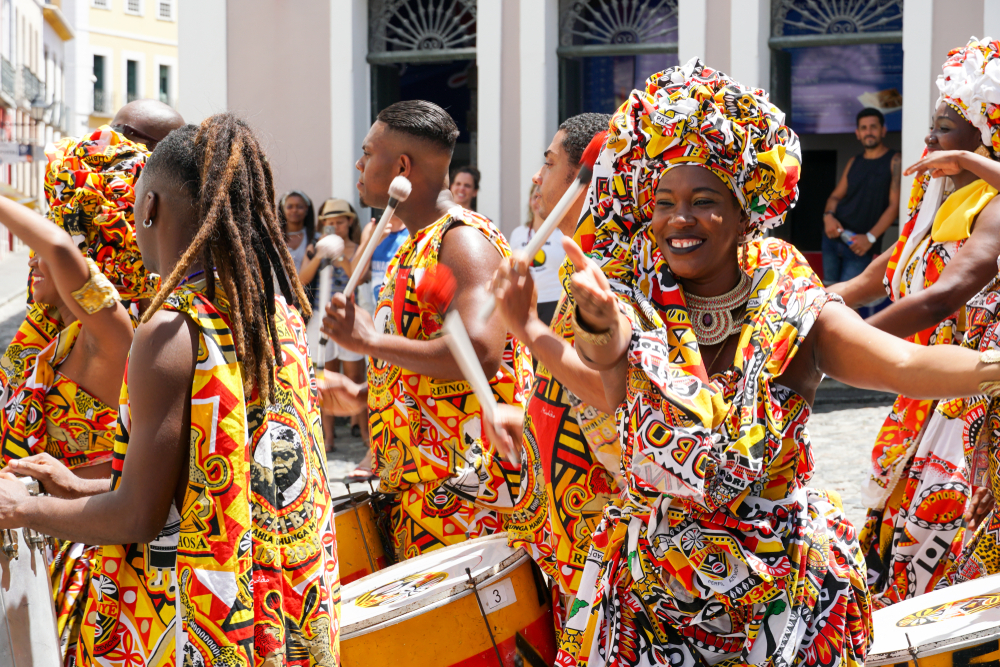
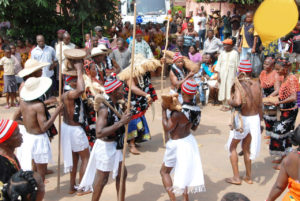
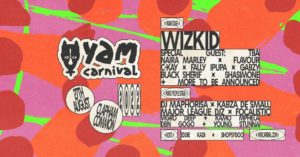
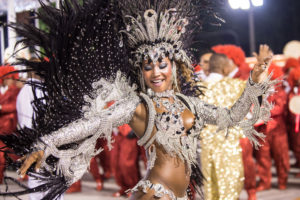
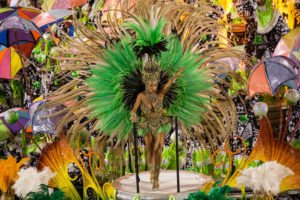
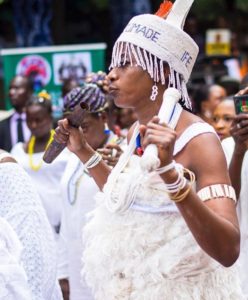
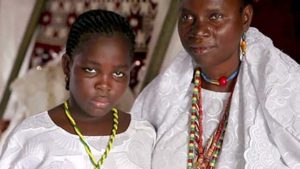
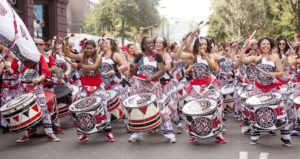
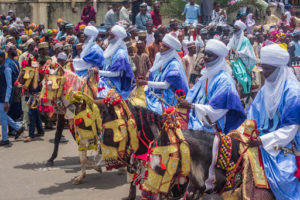
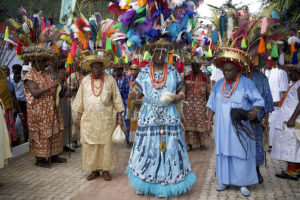
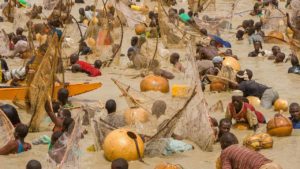
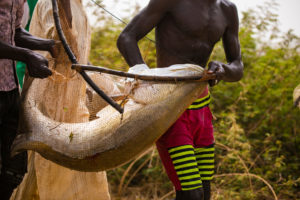

2 comments
Lovely read
Tbh I’ve never heard of the fish festival —Argungu, must be fun. Love how precise this is, well done Teddie…